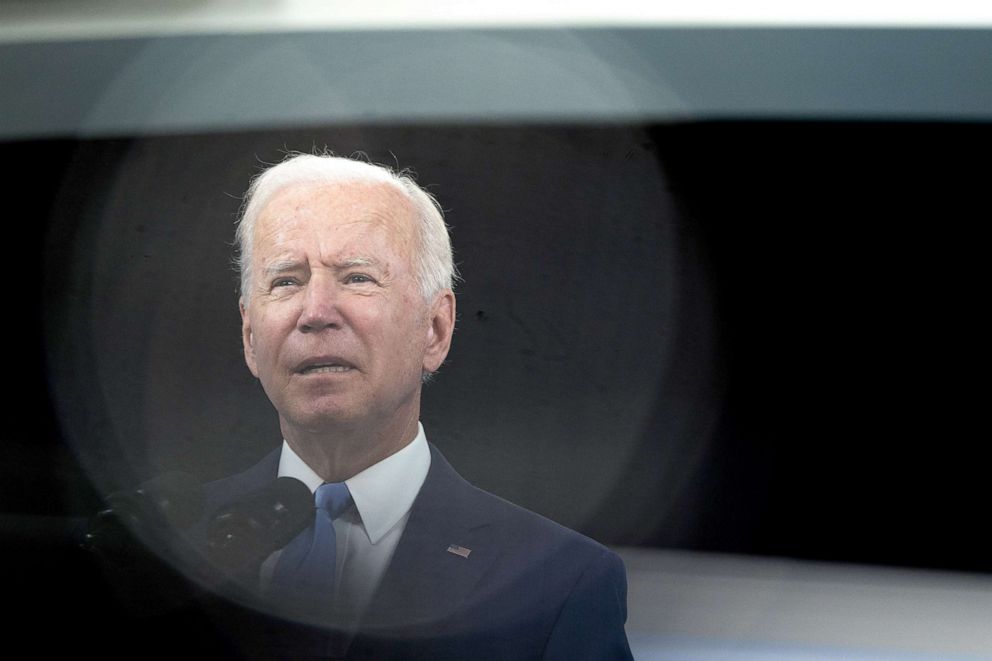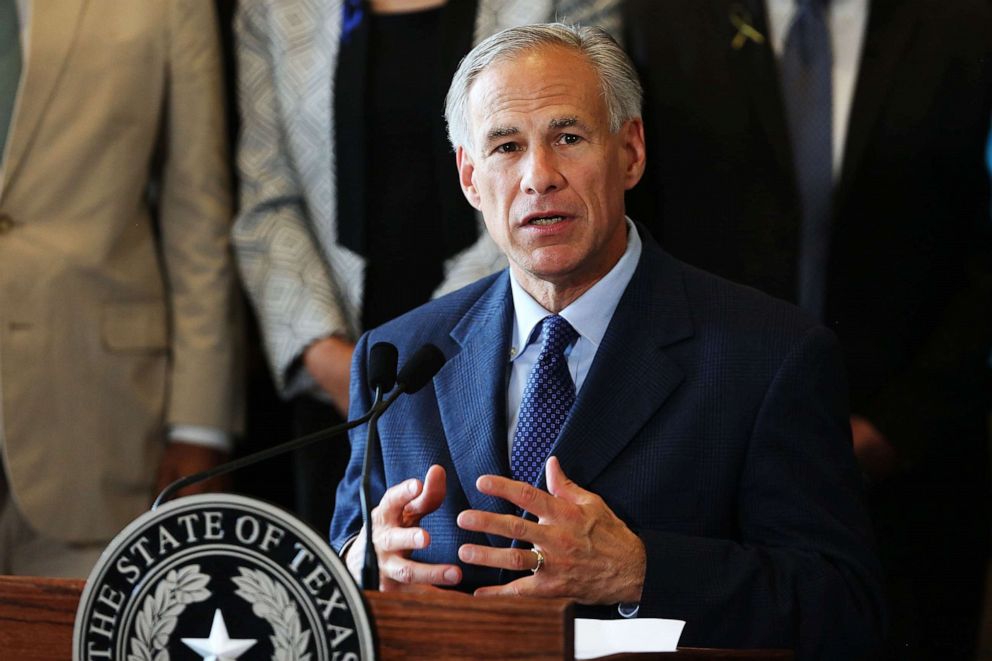Jan. 6 committee plays to GOP concerns over Trump: The Note
The hearing was meant to remind non-Trump-loyal voters of what his hold means.
The TAKE with Rick Klein
The official reason for Tuesday night's vote by the Jan. 6 committee was to start the arduous and uncertain process of holding Steve Bannon in criminal contempt of Congress.
But the unofficial purpose of the brief and unusual prime-time hearing was to push at a soft spot in the hold former President Donald Trump has over his party -- and remind non-Trump-loyal voters of what that hold means.
Bannon's cooperation with the probe is questionable at best, even if the Department of Justice eventually takes the rare step of pursuing criminal charges. His possible testimony, though, is less important than the message being sent to other potential witnesses.
As for Tuesday night's message, the committee's Republican vice chairman, Rep. Liz Cheney, was front and center to directly address for her fellow members of the GOP.
"Almost every one of my colleagues knows, in your hearts, that what happened on Jan. 6 was profoundly wrong," said Cheney, R-Wyo.
She added that Trump repeats false claims about the last election "almost daily": "This is a prescription for national self-destruction."
Cheney's view remains that of a distinct minority, both among her House colleagues and with the broader public, at least in terms of what they will say publicly. A Quinnipiac University poll released Tuesday showed that 78% of Republicans want Trump to run again, up 12 points since May.
But that same poll found that 58% of independents don't want another Trump run. Just more than half of Americans overall -- 51% -- say they think Trump has been "undermining democracy" since last year's election, while 59% say they consider what happened Jan. 6 to have been an attack on democracy.
Hours before the Bannon-related vote, Trump mocked the committee -- particularly its two Republican members -- and said in a statement that the "highly partisan Unselect Committee continues to rock and roll."
Whatever that means, committee members -- especially those Republicans -- are playing tunes that might be uncomfortable for the former president to hear.
The RUNDOWN with Alisa Wiersema
The distance between House progressives and the White House is likely to resurface Wednesday as former Chicago Mayor Rahm Emanuel sits before the Senate Foreign Relations Committee for his confirmation hearing to become ambassador to Japan.
Reps. Alexandria Ocasio-Cortez, Cori Bush, Rashida Tlaib, Mondaire Jones and Jamaal Bowman have all spoken out against the nomination over his handling of the death of 17-year-old Laquan McDonald, who was shot by police 16 times when Emanuel was mayor. The shooting, which was caught on police dashcam video, drew protests in a city that has a history of tensions between people of color and its police department.
Although House members do not have a say in the confirmation process, progressives have been applying pressure for a vote against Emanuel's nomination. Ocasio-Cortez has called the nomination "deeply shameful," and in a joint statement issued last month, Bush and Jones called out Emanuel's potential post as antithetical to lawmakers' expressed efforts to work for racial justice.

"Over the past year, as communities across the country have come together to demand we dismantle systemic racism, Senators across the political spectrum have extolled their commitment to advancing racial justice. Voting to confirm Rahm Emanuel would betray that commitment," the pair said.
On Tuesday, White House press secretary Jen Psaki defended the former mayor as "somebody who has a record of public service both in Congress serving as a public official in the White House, and certainly also as the mayor of Chicago." Psaki also said Biden's "record, commitment to police reform speaks for itself." Emanuel was an ABC News contributor after he served as mayor and until his nomination for the post.
The TIP with Meg Cunningham
The Texas legislature is ending its special session with a number of unchecked boxes when it comes to the Republican Party's legislative agenda, including the death of two bills involving election law. One would have continued relitigating the 2020 election by establishing an election review committee to execute audits if a state or county party official requests it. The other would have increased the penalty for illegal voting.
Voting rights was a centerpiece in the Texas legislature this summer, with Democrats fleeing the state for weeks on end in their failed attempt to block the passage of a GOP-led elections bill, which eventually passed along party lines. But while Republicans had already approved the two special session election bills in the Senate earlier this month, they never received hearings in the House.

Former President Donald Trump weighed in on the demand for audits, pressuring Gov. Greg Abbott in late September to "act now" to audit the 2020 election results.
"Texas needs you to act now. Your Third Special Session is the perfect, and maybe last, opportunity to pass this audit bill. Time is running out," he wrote in a letter to Abbott.
By not adding the bill to the special session, Abbott bucked the president's request but assured concerned Texans that methods taken through the secretary of state's office would be sufficient to maintain election integrity.
Texas was already at the center of the conversation on voting rights, but the death of the two bills will at least keep some resources focused on the elections ahead instead of the past.
THE PLAYLIST
ABC News' "Start Here" Podcast. Wednesday morning's episode features Netflix under the microscope as LGBTQ groups blast the streamer's Dave Chappelle special, criticizing it as transphobic. Vanity Fair Contributing Editor Maureen Ryan joins us to discuss how Netflix is responding as some employees are set to stage a walkout. Then, ABC's Marcus Moore is in Haiti reporting on the ransom demanded by a gang in the kidnapping of multiple U.S. missionaries. And, we talk to one hearing loss advocate about the impact the Food and Drug Administration's new proposal for over-the-counter hearing aids could have on the community. http://apple.co/2HPocULWHAT YOU NEED TO KNOW TODAY
Download the ABC News app and select "The Note" as an item of interest to receive the day's sharpest political analysis.
The Note is a daily ABC News feature that highlights the day's top stories in politics. Please check back tomorrow for the latest.





